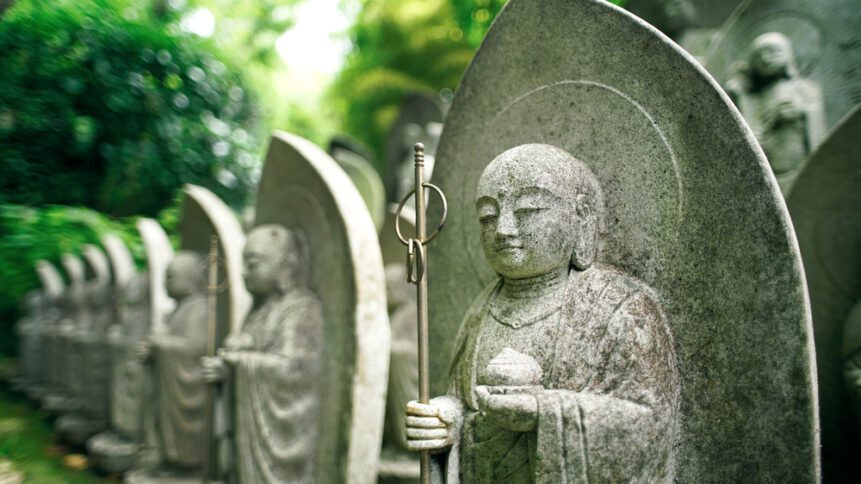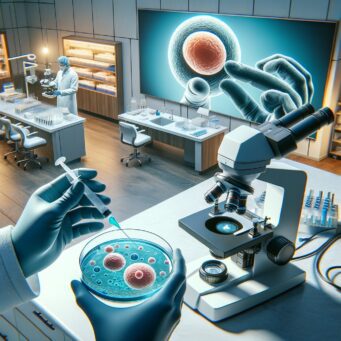
It is that time again…I am waiting for my period to start. I am waiting for another period because I am hoping for my fourth pregnancy, though I have no living children. I am one of the 1 to 2% of women who has experienced recurrent pregnancy loss through miscarriage.
My first miscarriage was in November 2016. As I watched the election results, I was also bleeding, passing the blighted ovum that I had thought, until a couple of days prior, was a 10-week-old embryo. The heartbreak from my miscarriage was profound. It was messy. While my husband did his best to support me, it was a lonely experience, especially as we moved into the dark, cold winter months.
I would later go on to find out that many other women in my life had had miscarriages, too. No one really tells you that pregnancy loss is very common until you start trying to have a baby. I was led to believe, earnestly, that I would come through this experience and go on to have a healthy pregnancy. That too, seemed guaranteed.
My next pregnancy came around seven months later. I learned I was pregnant while I was at a friend’s bachelorette party. (After missing a period, I had decided to take a drugstore pregnancy test that night.) The news came to the group as a happy sign of hope and of new life.
My sister and I would have been due within a month of each other if my first pregnancy had ‘stuck.’ Instead, I welcomed my niece, her second perfect little baby, whom I resented, guiltily, for some time.
I missed that friend’s wedding later in the summer because I was again miscarrying.
This time, I had seen a heartbeat at 7.5 weeks at a midwife appointment and I was elated — nervous but excited. At my 10-week scan, the midwives at the clinic all greeting me happily and with optimism for my official first prenatal appointment.
They treated this like any other prenatal appointment. I remember waiting on the table, anticipating this second ultrasound.
My midwife and her assistants were there looking for another heartbeat but it became clear to them that there was none. My midwife kept saying she was sorry, and I kept trying to sort out how a heartbeat, so strong just a few weeks prior, had been so quickly extinguished. I kept looking at the floating fetus and squinting hard but trying in vain to see the non-existent heartbeat.
After our second miscarriage, we did a couple tests, which we later learned that our midwife had actually botched, but we learned to chalk the first two losses up to “bad luck.”
In the meantime, many of the women in my life started to have their babies. After all, we had all gotten pregnant around the same time. And I was thinking, naively, that we would all have our babies together and share pregnancy, labor, and early mom stories and tricks together. My sister and I would have been due within a month of each other if my first pregnancy had “stuck.” Instead, I welcomed my niece, her second perfect little baby, whom I resented, guiltily, for some time.
Anyone who has experienced this kind of loss will know the uniquely horrible feeling of resenting the joy of life coming into this world. Who does not love a baby, or a pregnant woman, right?
Except, I realized, that I could. Of course, there is a part of me that is very happy for the friends and family in my life that have children. I don’t wish miscarriage or loss for them, but it is tricky to feel joy for others when their joy seems to fly in the face of my own grief, my own longing to be a mother.
After my third loss, I decided to get a tattoo on my left forearm, visible for all to see, a multi-colored tattoo of Bodhisattva, Jizo Bosatsu (also known as Ksitigarbha Bodhisattva in Sanskrit). In the Buddhist tradition, Jizo is known for compassion, strength, light in the darkness.
There are moments that this grief seems to connect me, on some deep level, to the broader human condition of loss and grief. On those days, I resonate with author and spiritual guide Joanna Macy’s teaching about sorrow, grief, rage, exposing a measure of humanity, maturity, and ultimately, a measure of my own open heart. Even as I feel loss and failure as I look at the many “first birthday” photos of my friends’ babies and related parties in my social media feeds, I find comfort in Macy’s reminder that this broken open-heartedness is where we can find healing and connection.
Despite the grief, the lost workdays (emergency cancellations of work trips and important meetings because of my miscarriages), and the depression, we decided to try to get pregnant again.
For the third pregnancy, I was in Washington, D.C. taking a pregnancy test in my business hotel room after another missed period. Seeing that plus sign on the plastic pregnancy test brought me joy and I quickly called my husband to tell him the good news. I felt scared but hopeful.
I had my first ultrasound with a heartbeat detected at 7 weeks. At 8.5 weeks I went back in, early, because I sensed something was wrong with a noticeable decline in my pregnancy symptoms. But things were fine, there was a heartbeat. (I would later learn that my midwife hadn’t been taking growth measurements or counting heartbeats and thus missed some important steps for assessing whether things really were fine).
I didn’t learn that the embryo had stopped developing at just over 8.5 weeks until I went in for an 11-week ultrasound. Again, I found myself laying on the bed, the midwife moving the vaginal ultrasound wand around because we couldn’t get a good view. There it was, the little embryo, suspended there in my broken uterus.
My husband cried more this time around. He generally maintains a certain sense of optimism about all of this, an optimism that I find both supportive and at times utterly stifling because I anticipate that it will have a limit, that at some point it will reach a breaking point and he will give up.
Some small part of me wishes for that because then I can stop trying so hard.
But the rest of me looks to him for light in the midst of darkness and hopelessness, that he can remain hopeful — giving me the lifeline I need to keep going.
Because we told most people that we were pregnant each time, we also then told them about the miscarriages. The third time hit everyone hard.
My mother-in-law left a tear-choked message on my machine. So did many others. This time we all thought, maybe this is something more serious; maybe we are not guaranteed to experience biological parenthood.
Maybe I won’t get to give birth, to be a mother, at least in the way I had envisioned. Maybe I will only know motherhood through the view of these three losses, these bloody messes, these heartbreaks.
After my third loss, I decided to get a tattoo on my left forearm, visible for all to see, a multi-colored tattoo of Bodhisattva, Jizo Bosatsu (also known as Ksitigarbha Bodhisattva in Sanskrit).
In the Buddhist tradition, Jizo is known for compassion, strength, light in the darkness. He is also the protector of children, especially those who have died via miscarriage, abortion, stillbirth, or childhood illness.
I found the story of Jizo affirming, with many in Japan using the physical symbol of Jizo statues to publicly mourn the loss of their children. I also have a large statue of him in our household garden, two other statues inside our home that my husband gave me, a small Jizo figurine my Zen teacher got for me, and one that my five-year-old niece miraculously discovered for me at a small store in Portland.
I have a lot of Jizo in my life, who also brings light to my life. Jizo is the physical manifestation of everything that I have created and lost. When I see him, I feel like my “invisible” losses are seen, felt, and witnessed and in so doing, I find my path a little less arduous and painful, if even for just moments at a time.
There are still options for us (for further fertility treatments, adoption, fostering) and the future is never settled. But for now, I am learning to live in this limbo and make peace with the not knowing.
In this way, I am reminded of the last lines of Mary Oliver’s poem, No Voyage, where she learns to be with the dying, the grieving, the loss, and to “sort the weeping ruins of my house: Here or nowhere I will make peace with the fact.”
I am learning to make peace with these three losses, opening me up to the “weeping ruins,” to witness my own, and others’ suffering. I’m learning, ever so slowly, to make sense of the wreckage.
After finding a sense of peace in all of this loss, we decided to keep trying, holding on to bits of light.
We welcomed a baby girl, February 4th, 2020, almost four years after trying to conceive a baby. When she laid on my chest, in those first few moments after her birth, I exclaimed that she was a long time coming, nearly four years in the making.
There were these lights pulling me through the darkness—my husband’s endless positivity, the spirit and talisman of Jizo, the three that we lost, and ultimately, our daughter, Frances Eloise.
I learned that there is hope in the darkness — you just have to look really hard sometimes to find it.
Contributor
Gabrielle Roesch-McNally
Gabrielle Roesch-McNally, PhD is the director of a national women in agriculture program that works to support women’s success in the field of agriculture and food systems. She lives in Oregon and has many chickens, a big garden, and now a little eight-month-old to keep her busy.

Listen to stories, share your own, and get feedback from the community.


















